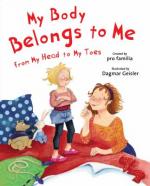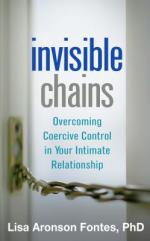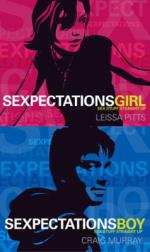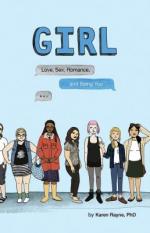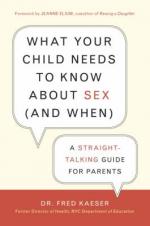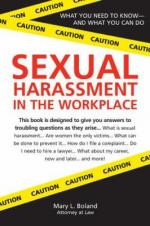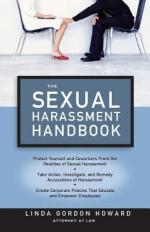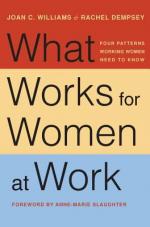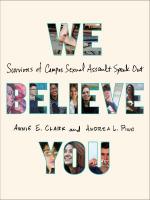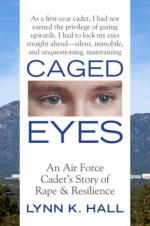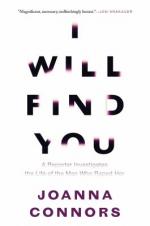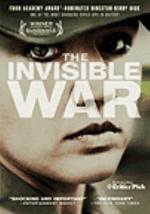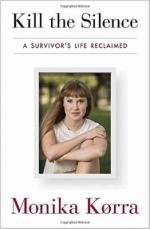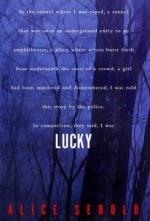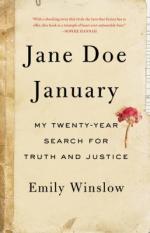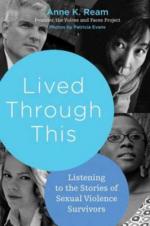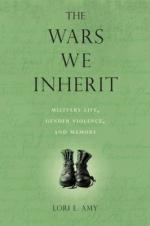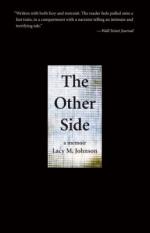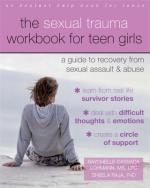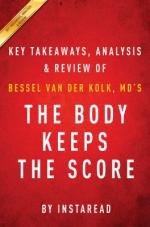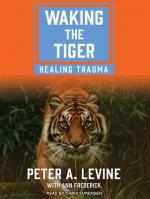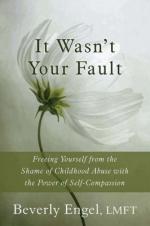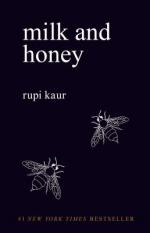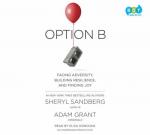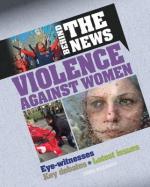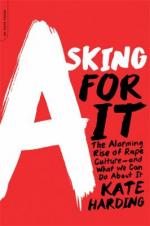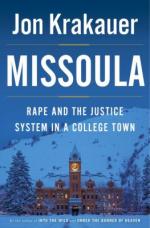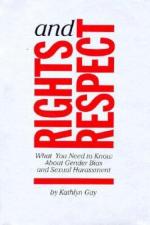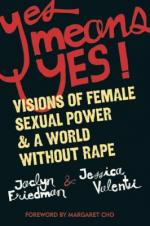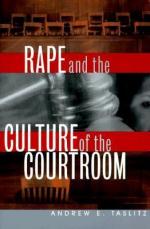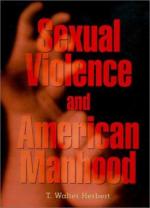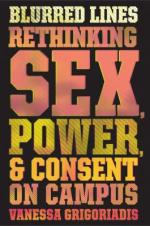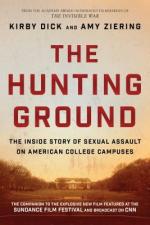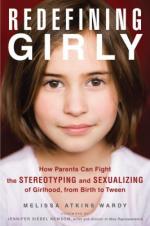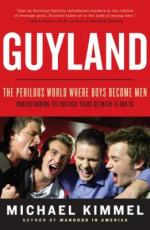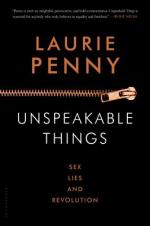October 25, 2017 | melissa c
Stories about the alleged abusive behavior of Harvey Weinstein have dominated the news lately, as more and more women come forward to share their experiences. In this book list you will find non-fiction resources related to sexual harassment and sexual assault including: books for parents, teens, and children, books for survivors, for educators, books for family, friends, or anyone interested in learning how to be a good ally. Some of these books feature discussion and analysis aimed at identifying the individual and/or systemic causes of sexual harassment or assault, while memoirs and other survivor accounts shed light on the effects of such abuse.
If you have experienced sexual assault, help and support are available by following the links below or by calling the National Sexual Assault Hotline at 800-565-HOPE(4673).
RAINN - the nation's largest anti-sexual violence organization.
First Step - Wayne County, MI non-profit organization providing comprehensive services for victims of domestic and sexual violence.
HAVEN - Oakland County, MI program that provides shelter, counseling, and advocacy for victims of domestic violence and sexual assault.
Teen Dating Violence - information from the Michigan Domestic and Sexual Violence Prevention and Treatment Board.
Michigan Department of Health and Human Services - resources on domestic and sexual violence.
On Education: bodily integrity, healthy relationships, sexual harassment, consent
Provides children with confidence about accepting and rejecting physical contact from others, helping to give children a voice in uncomfortable situations.
Fontes aims to help people avoid coercive control, stop it in their relationships, and extricate themselves from unsalvageable relationships. The book is divided into sections on defining coercive control, explaining why it happens, stopping its pattern, and how readers can support someone they know who is subject to such behavior.
Examines issues involving sexual exploration, sexual desire, and making positive, responsible choices, in a guide that provides straightforward facts on everything from keeping safe to understanding sexual identity.
Offers an inclusive guide for self-identified girls intended to provide practical and candid guidance on such topics as sexuality, relationships, gender, sexual health, consent, and sexual assault.
Presents information about dating and sex for teenage boys, including such topics as puberty, asking someone out on a date, and sexual orientation. Issues of consent, gender roles, stereotypes, and the often-confusing and little-discussed emotions in boys' early sexual experiences ("After being sexual, some guys feel sad or guilty") add to a substantive, thorough treatment of the topic.
Corinna answers every possible question teens and young adults could have about virginity, puberty, pregnancy, body image, masturbation, sexual identity, the variety of relationships, and the mechanics of partnered sex. She also addresses topics that are often overlooked, e.g. realistic teen relationship management skills. An excellent resource for preteens, teens, young adults, and people working with these populations.
A straight-talking guide for modern parents about how and when to talk to their young children about sex and sexuality, from a professor of human sexuality and former director of health for New York City public schools.
It's not a pretty subject--but someone has to talk about it. Sexual harassment can confront any age and any gender in the workplace. Lawyer Boland defines it in the two legal ways--quid pro quo and a hostile work environment--then explains the corporate point of view, remedies, and legal resources.
Do you think you have to put up with inappropriate sexual behavior to get ahead in your career? Are you concerned that anything you do or say could be interpreted as sexual harassment? The Sexual Harassment Handbook gives you the insight to assess a sexual situation on the job and take effective action, before the lawyers are called in.
Williams and Dempsey's analysis of working women is nuanced and in-depth, going far beyond the traditional cookie-cutter, one-size-fits-all approaches of most career guides for women. Throughout the book, they weave real-life anecdotes from the women they interviewed, along with quick kernels of advice like a "New Girl Action Plan," ways to "Take Care of Yourself", and even "Comeback Lines" for dealing with sexual harassment and other difficult situations.
On Speaking Out: sharing experiences
More than one in five women and 5 percent of men are sexually assaulted while at college. Some survivors are coming forward; others are not. InWe Believe You, students from every kind of college and university share experiences of trauma, healing, and everyday activism, representing a diversity of races, economic and family backgrounds, gender identities, immigration statuses, interests, capacities, and loves.
A personal account of sexual assault in the military, from the point of view of a cadet in the Air Force Academy. While it may not be the right read for everyone due to its unique point of view and profusion of self-blame, Hall allows them to truly understand how victims internalize the worst accusations of the culture around them and the monumental effort needed to combat their own self-doubt.
A journalist's harrowing account of how, over the course of more than three decades, she came to terms with an experience of rape. Powerful and compelling, the book is a highly personal examination of the volatile intersection of race, poverty, and violence.
Academy Award-nominated filmmaker Kirby Dick investigates the troubling epidemic of rape in the military while speaking with courageous victims who have refused to be intimidated into silence. In 2009 alone, 16,150 service members were sexually assaulted. Meanwhile, it's estimated that female soldiers in the U.S. military are more likely to be raped by a male soldier than shot by an enemy combatant.
A former Southern Methodist University track star's account of how she survived a brutal rape that changed her life. The author vowed that her life would go on just as it had before the attack, but in the two years that followed, she found out just how difficult it would be to keep that promise to herself.
A stunningly crafted and unsparing account of the author's rape as a college freshman and what it took to win her case in court. In 1981, Sebold was brutally raped on her college campus, at Syracuse University. Sebold, a New York Times Magazine contributor, now in her 30s, reconstructs the rape and the year following in which her assailant was brought to trial and found guilty.
With remarkable emotional insight and precision, mystery writer Winslow (The Red House) turns to memoir to narrate the long-delayed prosecution of the man who raped her two decades ago. When her case is reopened in 2013 by a DNA match in another case, Winslow navigates a bureaucratic nightmare of delays, observing that "waiting isn't a sea that gradually approaches a beach; it's a wet pit with vertical walls." She probes the depths of rape victimhood and its social connotations, comparing expectations to "be a perfect little broken princess" with the reality of her situation.
The atrocity of sexual abuse as told by a captivating, diverse collective of survivors. Divided into four sections, the book profiles individuals of varying age groups, races, sexes and backgrounds, many who were raped as children, each fortunate enough to enjoy rich, fulfilling lives after years spent processing their emotionally scarred pasts.
Drawing on sociology and neuroscience as well as anecdotal evidence, Amy, director of Georgia State University's Women's and Gender Studies Program, creates a memoir centered on her family's dysfunction, evolving into a detailed study of military "hypermasculinity," which builds soldiers by stripping away humanity. This learned violence, she says, migrates from the adrenaline-soaked battlefield to the home, recreating the military cycle of control and abuse. Equally damaging is this system's encouraging silence from women trying to remain loyal to their men and country.
In this riveting memoir, Johnson (Trespasses, 2012) writes of falling prey to an act of terrifying violence and its aftermath.In 2000, the author's former boyfriend kidnapped her and held her captive, raped her and threatened her with death. Though she eventually escaped, it took years to free herself from the emotional and psychological damage she suffered. Ferociously beautiful and courageous, Johnson's intimate story sheds light on the perpetuation of violence against women.
On Healing: body and soul
Provides teens who have suffered sexual trauma with advice on reaching out for support, working through feelings of shame or fear, and creating a personal safety plan, in a book that includes stories from sexual abuse survivors.
Trauma expert Bessel van der Kolk has spent over three decades working with survivors. Here, he transforms our understanding of traumatic stress, revealing how it literally rearranges the brain’s wiring—specifically areas dedicated to pleasure, engagement, control, and trust. He shows how these areas can be reactivated through innovative treatments including neurofeedback, mindfulness techniques, play, yoga, and other therapies.
Waking the Tiger offers a new and hopeful vision of trauma. By understanding the dynamics that make wild animals virtually immune to traumatic symptoms, the mystery of human trauma is revealed. Waking the Tiger normalizes the symptoms of trauma and the steps needed to heal them. The listener is taken on a guided tour of the subtle, yet powerful impulses that govern our responses to overwhelming life events.
In It Wasn't Your Fault, a therapist presents a compassion-based therapeutic approach to help survivors of physical and sexual abuse overcome the debilitating shame that often keeps them tied to the past. By offering step-by-step techniques for understanding the root cause of shame, as well as exercises in mindfulness and compassion for the self and others, this book will help readers begin to heal and move past painful experiences.
milk and honey is a collection of poetry and prose about survival. About the experience of violence, abuse, love, loss, and femininity.
Sandberg and Grant explore how we deal with adversity, but perhaps more important, they discuss how we can be fiercely resilient in the face of tragedy. Sandberg and Grant weave her personal journey into a larger, more inclusive framework of adversity in this well-researched book of facts and sound advice that will serve as a guide to those impacted by life's wicked curve balls.
On Causes and Solutions: discussion of cases and culture
Examines exploitation and acts of violence against women and girls worldwide, from trafficking and murder to sexual and domestic abuse, and encourages readers to consider the ways such violence can be combated.
Harding's introduction notes that she began her book in 2012 amid the conversations that emerged after Missouri Representative Todd Akin used the phrase "legitimate rape." Three years later, says the author, "Americans are still talking seriously about rape and rape culture." Harding's book serves as a welcome addition to the conversation. In it, she doesn't mince words about the systemic oppression of women.
The Internet is sometimes viewed as an equal playing field for those of different backgrounds: class, race, gender, and sexual identity. In her first book, Poland exposes this misconception by arguing that the digital realm has been a breeding ground for racist, sexist, and homophobic harassment since its inception. The author examines the roots and consequences of cybersexism from an intersectional point of view with the support of real-world examples and specific legal cases.
Examines sexual assaults at the University of Montana to reveal the prevalence of rape on American campuses, explaining why victims are reluctant to report the crime and chronicling the experiences of several women from the Missoula campus.
Describes sexual harassment in school and at work, explains the relationship of harassment to sex discrimination, and explores methods of preventing gender bias and harassment.
Activists and writers Friedman and Valenti (He's a Stud, She's a Slut) deliver an extraordinary essay compilation focusing on the struggle to stop rape in the U.S. and the importance of sexual identity and ownership. Though surprisingly entertaining throughout, with no shortage of wit or humor, unexpected topics keep the book dynamic. Sure to empower and inform, this is an important and inspiring read for assault survivors, educators, activists, experts and those on a path to self discovery.
Taslitz (law, Howard Univ.) explores language in the courtroom in rape trials, showing how the constructed narratives in courtroom dramas in rape cases reinforce sexual and racial stereotypes. The book illustrates these themes by drawing on materials from well-known cases. Taslitz argues that the problems do not reside only, or even primarily, with irresponsible attorneys, but are inherent in the form and structure of evidence law, as well as in the very nature of the adversary system.
Herbert (English, Southwestern Univ.) traces the shifting ideologies that have created and justified the sexually abusive behavior of men in 19th- and 20th-century America, mainly through an examination of literary texts. Surveying what he calls the tradition of "despotic manhood," Herbert alights on some very familiar works. His conclusions about the past and present culture of misogyny in America are as convincing as they are sobering, but Herbert sounds a hopeful note throughout, believing that Americans can draw on their democratic traditions to achieve more egalitarian sexual relations.
In True Gentlemen, Hechinger embarks on a deep investigation of SAE and fraternity culture generally, exposing the vast gulf between its founding ideals and the realities of its impact on colleges and the world at large. He shows how national fraternities are reacting to a slowly dawning new reality, and asks what the rest of us should do about it. Should we ban them outright, or will they only be driven underground? Can an institution this broken be saved? With rare access and skillful storytelling, Hechinger draws a fascinating and necessary portrait of an institution in deep need of reform, and makes a case for how it can happen.
National Magazine Award-winning journalist Grigoriadis explores sexual assault, rape culture, and sexual politics at American universities. She uses the story of Emma Sulkowicz, the Columbia University student who carried her mattress around campus after the administration failed to expel her alleged rapist, as a launching pad to define consent and assault, which Grigoriadis argues are murky concepts. Her focus on acquaintance rape rather than stranger rape highlights campus cultural issues such as alcohol and drug use and institutions such as fraternities and sororities that contribute to increased rates of sexual violence.
The debate over sexual violence on campus is reaching fever pitch, from headlines about out-of-control fraternities, to the "mattress protests" by female students at Columbia University and other colleges. The Hunting Ground, the new documentary by award-winning filmmakers Kirby Dick and Amy Ziering, has taken this debate to a new level. Now, in a new companion volume to the film, all those concerned about the "rape culture" on campus will be offered an inside perspective on the controversy, as well as reactions to the film from a range of leading writers and guidance on how to learn more and get active.
Containing practical, specific parenting advice; strategies for effecting change with educators, store managers, corporations, and more; and tips for challenging and changing the media, this essential guide gives parents the tools they need to fight back against the modern stereotyping and sexualization of young girls.
Based on nearly 400 interviews with mainly white, middle-class, college-educated youths, the author's findings are at once commonsensical and provocative, demonstrating the prevalence of this lifestyle of entitlement and instant gratification. The book raises important questions about a "guy code" of silence that encourages them to disregard the sometimes extreme behaviors (binge drinking, bullying, predatory sex, etc.) of other males. A useful, highly readable overview of an important social phenomenon.
In her latest work, Valenti (Why Have Kids?; The Purity Myth; Yes Means Yes!) provides an unflinching description of her experiences with sexual assault and harassment, dysfunctional relationships, and objectification. The result is a book that is brief and harrowing, sometimes confessional, and occasionally brusque. There is little in the way of a call to arms here, but instead a clear-eyed documentation of the author's life as a woman in an urban setting where sexual objectification is rampant. While Valenti doesn't claim that her experience is universal, she convincingly argues that her stories, while personal, are not by any means exceptional.
Smart, clear-eyed, and irreverent, Unspeakable Things is a fresh look at gender and power in the twenty-first century, which asks difficult questions about dissent and desire, money and masculinity, sexual violence, menial work, mental health, queer politics, and the Internet. Unspeakable Things is a book that is eye-opening not only in the critique it provides, but also in the revolutionary alternatives it imagines.
